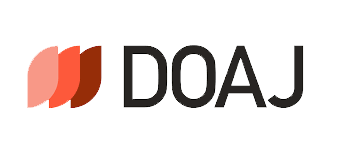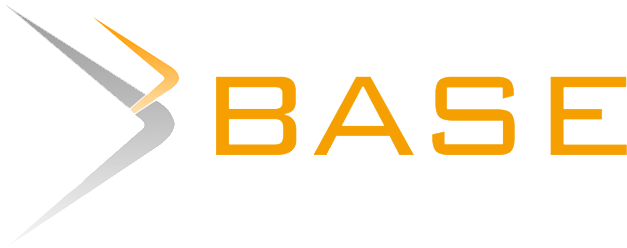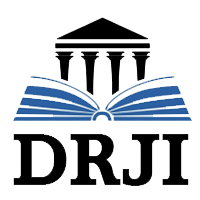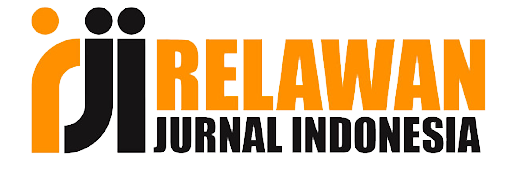Peran Kesiapan Belajar Online Sebagai Moderator Hubungan Antara Regulasi Diri dan Motivasi Belajar Praktikum Mahasiswa Selama Pembelajaran Praktikum Kimia Daring Di Masa Pandemi Covid-19
Abstract
Research has been conducted on the role of online learning readiness as a moderator of the relationship between self-regulation and student practicum learning readiness during online practicum learning during the COVID-19 pandemic. The purpose of this study was to determine the moderating role of online learning readiness on the relationship between self-regulation and practicum learning motivation. This research was conducted quantitatively on 147 students who had participated in online and face-to-face practicum learning in the laboratory (group 1; N=71), as well as students who only participated in online practicum learning (group 2; N=76). The results showed that online learning readiness had a significant moderating effect only in group 1, R2=38%; ∆R2 = 0,7%; F(3,91)=18,40; t(1,98)= -0,804; p<0,05, while in group 2, the moderating effect were not significant, R2=6,1%; ∆R2=0,1%; F(3,91)=0,616; t(1,98)=0,237; p>0,05. In group 1, students' practicum learning motivation decreased along with increasing self-regulation at all levels of online learning readiness, and in group 2 there was no moderating effect. That is, at each level of student online learning readiness, the higher the self-regulation, the lower the practicum motivation is. According to the results obtained, students' expectations, values, interests, and experiences related to practicum also affect the role of online learning readiness in moderating the relationship between self-regulation and student practicum learning motivation during online practicum learning during the COVID-19 pandemic.
Telah dilakukan penelitian tentang peran kesiapan belajar online sebagai moderator hubungan antara regulasi diri dan kesiapan belajar praktikum mahasiswa selama pembelajaran praktikum daring di masa pandemi COVID-19. Tujuan dari penelitian ini adalah untuk mengetahui adanya peran moderasi dari kesiapan belajar online terhadap hubungan antara regulasi diri dan motivasi belajar praktikum. Penelitian ini dilakukan secara kuantitatif terhadap 147 mahasiswa yang pernah mengikuti pembelajaran praktikum daring dan tatap muka di laboratorium (kelompok uji 1; N=71), serta mahasiswa yang hanya mengikuti pembelajaran praktikum daring (kelompok uji 2; N=76). Hasil penelitian menunjukkan bahwa kesiapan belajar online memberikan efek moderasi secara signifikan hanya pada kelompok uji 1, R2=38%; ∆R2 = 0,7%; F(3,91)=18,40; t(1,98)= -0,804; p<0,05, sedangkan pada kelompok uji 2 hasil moderasi yang diperoleh tidak signifikan, R2=6,1%; ∆R2=0,1%; F(3,91)=0,616; t(1,98)=0,237; p>0,05. Pada kelompok uji 1 kesiapan belajar online memberikan moderasi negatif pada hubungan antara regulasi diri dan motivasi belajar praktikum, dan pada kelompok uji 2 tidak terjadi efek moderasi. Artinya, pada setiap tingkat kesiapan belajar online mahasiswa, semakin tinggi regulasi diri maka semakin rendah motivasi belajar praktikum. Menurut hasil yang diperoleh, harapan, nilai, minat, dan pengalaman mahasiswa terkait pelaksanaan praktikum juga berpengaruh terhadap peran kesiapan belajar online dalam memoderatori hubungan antara regulasi diri dan motivasi belajar praktikum mahasiswa selama pembelajaran praktikum daring di masa pandemi COVID-19.
Keywords
Full Text:
PDFReferences
Abrahams, I., & Millar, R. (2008). Does Practical Work Really Work? A study of the effectiveness of practical work as a teaching and learning method in school science. International Journal of Science Education, 30(14), 1945–1969. https://doi.org/10.1080/09500690701749305
Alhadi, S., & Nanda Eka Saputra, W. (2017). The Relationship between Learning Motivation and Learning Outcome of Junior High School Students in Yogyakarta. Proceedings of the 1st Yogyakarta International Conference on Educational Management/Administration and Pedagogy (YICEMAP 2017). 1st Yogyakarta International Conference on Educational Management/Administration and Pedagogy (YICEMAP 2017), Yogyakarta, Indonesia. https://doi.org/10.2991/yicemap-17.2017.23
Atkinson, R. L., Richard, C. A., Smith, E. E., & Daryl, J. B. (2010). Pengantar Psikologi.
Barnard, L., Lan, W. Y., To, Y. M., Paton, V. O., & Lai, S.-L. (2009). Measuring self-regulation in online and blended learning environments. The Internet and Higher Education, 12(1), 1–6. https://doi.org/10.1016/j.iheduc.2008.10.005
Barnea, N., Dori, Y. J., & Hofstein, A. (2010). Development and implementation of inquiry-based and computerized-based laboratories: Reforming high school chemistry in Israel. Chem. Educ. Res. Pract., 11(3), 218–228. https://doi.org/10.1039/C005471M
Boekaerts, M. (1988). Motivated learning: Bias in appraisals. International Journal of Educational Research, 12(3), 267–280. https://doi.org/10.1016/0883-0355(88)90005-5
Boekaerts, M. (1991). Subjective competence, appraisals and self-assessment. Learning and Instruction, 1(1), 1–17. https://doi.org/10.1016/0959-4752(91)90016-2
Cahyani, B. H. (2019). Model belajar berdasarkan regulasi diri matematika pada siswa SMA. Gadjah Mada.
Chan, K. C., & Jang, S. J. (2010). Motivation in online learning: Testing a model of self-determination theory. 26(4), 741–752.
Chan, Y. L., & Norlizah, C. H. (2018). Students’ Motivation towards Science Learning and Students’ Science Achievement. International Journal of Academic Research in Progressive Education and Development, 6(4), Pages 174-189. https://doi.org/10.6007/IJARPED/v6-i4/3716
Collins, H. L., & DiCarlo, S. E. (1993). Physiology laboratory experience for high school students. Advances in Physiology Education, 265(6), S47. https://doi.org/10.1152/advances.1993.265.6.S47
Deci, E. L. (1975). Intrinsic motivation. Plenum Press.
Deci, E. L., & Ryan, R. M. (1985). Intrinsic motivation and self-determination in human behavior. Plenum Press.
Deci, E. L., & Ryan, R. M. (1991). A motivatioal approach to self: Integration in personality. University of Nebraska Press.
Dillon, J. (2008). A Review of the Research on Practical Work in School Science. 84.
Dohn, N. B., Fago, A., Overgaard, J., Madsen, P. T., & Malte, H. (2016). Students’ motivation toward laboratory work in physiology teaching. Advances in Physiology Education, 40(3), 313–318. https://doi.org/10.1152/advan.00029.2016
Dohn, N. B., Madsen, P. T., & Malte, H. (2009). The situational interest of undergraduate students in zoophysiology. Advances in Physiology Education, 33(3), 196–201. https://doi.org/10.1152/advan.00038.2009
Eilks, I., & Hofstein, A. (Ed.). (2013). Teaching chemistry: A studybook ; a practical guide and textbook for student teachers, teacher trainees and teachers. Sense Publishers.
Eka, N. G. A., Houghty, G. S., & Juniarta, J. (2019). MOTIVATION AND SELF-LEARNING READINESS OF BLENDED LEARNING IN RESEARCH AND STATISTICS COURSE FOR UNDERGRADUATE NURSING STUDENTS. JOHME: Journal of Holistic Mathematics Education, 3(1), 32. https://doi.org/10.19166/johme.v3i1.1919
Elyakim, N., Reychav, I., Offir, B., & McHaney, R. (2019). Perceptions of Transactional Distance in Blended Learning Using Location-Based Mobile Devices. Journal of Educational Computing Research, 57(1), 131–169. https://doi.org/10.1177/0735633117746169
Everaert, P., Opdecam, E., & Maussen, S. (2017). The relationship between motivation, learning approaches, academic performance and time spent. ACCOUNTING EDUCATION, 31.
Fadzil, H., & Saat, R. (2013). Phenomenographic Study of Students’ Manipulative Skills During Transition from Primary to Secondary School. Jurnal Teknologi, 63(2). https://doi.org/10.11113/jt.v63.2013
Gustiani, S. (2020). STUDENTS’ MOTIVATION IN ONLINE LEARNING DURING COVID-19 PANDEMIC ERA: A CASE STUDY. 12(2), 18.
Hackman, J. R., & Oldham, G. R. (1980). Motivation through the design of work. Addison-Wesley.
Harnett, M. (2010). Motivation to learn in online environments: An exploration of two tertiary education contexts. Massey.
Hinneh, J. T. (2017). Attitude towards Practical Work and Students’ Achievement in Biology: A Case of a Private Senior Secondary School in Gaborone, Botswana. 13(4), 6–11.
Hofstein, A., & Lunetta, V. N. (1982). The Role of the Laboratory in Science Teaching: Neglected Aspects of Research. Review of Educational Research, 52(2), 201–217. https://doi.org/10.3102/00346543052002201
Hofstein, A., & Mamlok-Naaman, R. (2007). The laboratory in science education: The state of the art. Chem. Educ. Res. Pract., 8(2), 105–107. https://doi.org/10.1039/B7RP90003A
Jakeways, R. (1986). Assessment of A-level physics (Nuffield) investigations. Physics Education, 21(4), 212–214. https://doi.org/10.1088/0031-9120/21/4/003
Jong, O. D., & Taber, K. S. (2007). The Many Faces of High School Chemistry. 25.
Kaur, P., Saini, S., & Vig, D. (2018). Metacognition, self-regulation, and learning environment as determinants of academic achievement. 9, 735–739.
Miltiadou, M., & Savenye, W. C. (2003). Applying Social Cognitive Constructs of Motivation to Enhance Student Success in Online Distance Education. 28.
Moore, M. G. (1989). Editorial: Three types of interaction. American Journal of Distance Education, 3(2), 1–7. https://doi.org/10.1080/08923648909526659
Moore, M. G. (1993). Theory of transactional distance. Routledge.
Okam, C. C., & Zakari, I. I. (2017). “Impact of Laboratory-Based Teaching Strategy on Students’ Attitudes and Mastery of Chemistry in Katsina Metropolis”, Katsina State, Nigeria. 6(1), 10.
Osman, K., Iksan, Z. H., & Halim, L. (2007). Sikap terhadap Sains dan Sikap Saintifik di kalangan Pelajar Sains. 22.
Pintrich, P. R. (2000). Multiple goals, multiple pathways: The role of goal orientation in learning and achievement. 92, 544–555.
Randall, W. C., & Burkholder, T. (1990). Hands-on laboratory experience in teaching-learning physiology. Advances in Physiology Education, 259(6), S4. https://doi.org/10.1152/advances.1990.259.6.S4
Rotgans, J. I., & Schmidt, H. G. (2014). Situational interest and learning: Thirst for knowledge. Learning and Instruction, 32, 37–50. https://doi.org/10.1016/j.learninstruc.2014.01.002
Ryan, R. M., & Deci, E. L. (2000). Intrinsic and Extrinsic Motivations: Classic Definitions and New Directions. Contemporary Educational Psychology, 25(1), 54–67. https://doi.org/10.1006/ceps.1999.1020
Schunk, D. H., Pintrich, P. R., & Meece, J. L. (2008). Motivation in education (3 ed.). Upper Saddle River, NJ: Pearson Merrill Prentice Hall.
Schwichow, M., Zimmerman, C., Croker, S., & Härtig, H. (2016). What students learn from hands-on activities: HANDS-ON VERSUS PAPER-AND-PENCIL. Journal of Research in Science Teaching, 53(7), 980–1002. https://doi.org/10.1002/tea.21320
Shana, Z., & Abulibdeh, E. S. (2020). Science practical work and its impact on students’ science achievement. Journal of Technology and Science Education, 10(2), 199. https://doi.org/10.3926/jotse.888
Slavin, R. E. (2011). Educational Psychology: Theory and Practice (9 ed.). Pearson Education, Inc.
Tobin, K. (1990). Research on Science Laboratory Activities: In Pursuit of Better Questions and Answers to Improve Learning. School Science and Mathematics, 90(5), 403–418. https://doi.org/10.1111/j.1949-8594.1990.tb17229.x
Vaino, K., Holbrook, J., & Rannikmäe, M. (2012). Stimulating students’ intrinsic motivation for learning chemistry through the use of context-based learning modules. Chem. Educ. Res. Pract., 13(4), 410–419. https://doi.org/10.1039/C2RP20045G
Vollmeyer, R., & Rheinberg, F. (2000). Does motivation affect performance via persistence? Learning and Instruction, 10(4), 293–309. https://doi.org/10.1016/S0959-4752(99)00031-6
Vroom, V. H. (1964). Work and motivation. Wiley.
Wigfield, A., & Eccles, J. S. (2000). Expectancy-value theory of achievement motivation. 25, 68–81.
Woodhull-McNeal, A. P. (1992). Project labs in physiology. Advances in Physiology Education, 263(6), S29. https://doi.org/10.1152/advances.1992.263.6.S29
Zare, M., Sarikhani, R., Salari, M., & Mansouri, V. (2016). The Impact of E-Learning on University Students’ Academic Achievement and Creativity. 8(1), 25–33.
Zee, M., & Bree, E. (2017). Students’ self-regulation and achievement in basic reading and math skills: The role of student-teacher relationship in middle childhood. 14, 265–280.
Zhou, Y., & Wang, J. (2019). Goal orientation, learning strategies, and academic performance in adult distance learning. 47, 8195.
DOI: https://doi.org/10.24176/perseptual.v7i2.6792
Article Metrics
Refbacks
- There are currently no refbacks.

Jurnal Psikologi Perseptual (eISSN 2580-9520) is licensed under a Creative Commons Attribution-ShareAlike 4.0 International License














